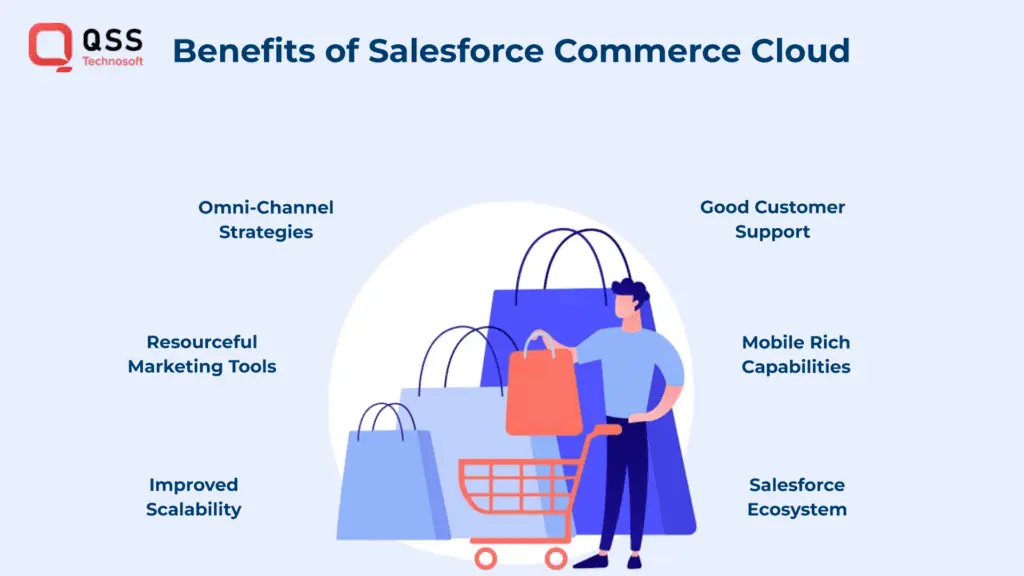Scaling up your business can be both exhilarating and overwhelming. It’s an attempt that promises growth and success, but also demands careful consideration and planning. Did you know that according to a survey conducted by McKinsey, 97% of companies faced challenges while Salesforce scaling their businesses? This highlights the importance of being well-prepared for the journey ahead.
One key challenge businesses face when scaling up is maintaining the quality of service and customer experience. As the demand for your products or services increases, it becomes crucial to ensure that your customers continue to receive the same level of satisfaction.
For example, Dropbox, a cloud storage company, scaled its user base from 100,000 to 4 million within 15 months by implementing a successful referral program. This demonstrates the power of using innovative strategies to match the speed of growth.

To overcome these challenges, having the right tools and technologies is essential. Implementing a robust customer relationship management (CRM) system can help you track customer interactions and deliver personalized experiences. On top of that, using project management software can streamline team collaboration and ensure efficient operations.
Make sure to read this blog till the end because in this blog we will read about how you can expand your business with Salesforce scaling.
Read More :Uncover the 15 Best Testing Practices for Salesforce App Development
Understanding the concept of “Salesforce Scaling”
Salesforce scaling refers to the process of expanding and optimizing Salesforce implementation to accommodate business growth and increased user demands. It involves evaluating and adjusting various aspects of the Salesforce platform to ensure it can effectively handle larger volumes of data, transactions, and users.
One example of Salesforce scaling is the case of a growing e-commerce company.
As their customer base expanded, they needed to scale up their Salesforce implementation to handle the increased sales and customer data. The company worked with Salesforce consultants to optimize their system by implementing efficient data architecture, improving data integration with other systems, and use automation tools.

This allowed them to seamlessly handle the growth in orders, customer interactions, and data processing, resulting in improved operational efficiency and enhanced customer experience.
In this example, Salesforce scaling helped the company effectively manage their growing business by adapting its Salesforce implementation to accommodate increased demands, maintain high-performance levels, and provide a seamless user experience.
Benefits of Scaling Up your business with Salesforce Scaling
Improve Your Overall” Data Management Progress”:
With Salesforce scaling best practices, businesses can consolidate multiple data sources into one centralized platform. This improves data management, reduces errors, and enables efficient data analysis.
For example, General Electric (GE) consolidated 11 different CRM systems into one Salesforce implementation, allowing them to gain visibility into their entire global sales operations.
Enhanced Sales and Marketing: By implementing Salesforce scaling best practices such as marketing automation and lead scoring, businesses can streamline sales and marketing operations, improve lead qualification, and enhance customer engagement.
Boston Scientific, for instance, used Salesforce to implement an automated email marketing campaign that resulted in a 400% increase in registrations.
High “Efficiency & Productivity”:
Salesforce scaling improves operational efficiency by automating time-consuming processes, such as data entry and customer follow-ups. This frees up time for employees to focus on high-value tasks.
For example, AVIS used Salesforce to automate their sales processes and reported an increase in productivity by 17%.
Read Our Old Blog : Salesforce : Developing Real Time Applications with Platform Events
Real-Time Visibility and Collaboration:
Salesforce scaling enables real-time visibility into a company’s sales, marketing, and customer service operations, allowing for better collaboration and decision-making.
For example, Uber used Salesforce to aggregate real-time data to help them make intelligent business decisions during the 2019 London Underground Strike.
Improved Customer Experience:
By using Salesforce scaling best practices such as personalized chatbots or automating follow-up tasks, businesses can improve their customers’ experience, ensuring repeat business and customer satisfaction.
Vista Outdoor used Salesforce to enhance its customer service experience, and the results showed an increase in customer satisfaction scores by 20%.

More Flexibility:
As businesses grow, Salesforce scaling allows for scalability and flexibility in terms of adding users, features, and functionalities.
For example, ADP scaled its Salesforce implementation to support a two-fold increase in its sales team and accommodate its evolving business needs.
Key Salesforce scaling best practices that can guide you in your growth journey.
1. Lay out the groundwork
Before you start scaling up, it’s crucial to have a strong foundation in place. This includes defining your business goals, identifying your target market and customer persona, and defining your key performance indicators (KPIs). Without a clear understanding of these aspects, scaling up can lead to chaos and confusion, and dilute your brand value.
Salesforce can help you establish this foundation by providing a single source of truth for customer data, enabling you to track customer interactions, behaviors, and preferences, and analyze them to gain insights into their needs and expectations. You can use Salesforce’s analytics and reporting tools to monitor your KPIs, identify areas of improvement, and make informed decisions.
2. Simplify the steps you take
Scaling up often requires redesigning your processes to make them more efficient, automated, and scalable. This means identifying and eliminating bottlenecks, automating routine tasks, and improving collaboration between teams. Streamlining your processes can free up time and resources, reduce errors, and improve customer satisfaction.
Salesforce offers a suite of automation and collaboration tools that can help you streamline your processes. For example, you can use workflows, process builder, and triggers to automate tasks such as lead routing, data entry, and follow-up emails. You can use Chatter, Salesforce’s internal communication and collaboration platform, to share ideas, documents, and feedback, and keep everyone on the same page.
3. Personalize your company’s specifications
One of the strengths of Salesforce is its ability to be customized to fit your business needs. This includes customizing fields, objects, and page layouts, creating custom reports and dashboards, and integrating with third-party apps and tools. Customization can enable you to tailor Salesforce to your specific workflows, data structures, and business processes, and make it more intuitive and user-friendly.
Salesforce’s customization capabilities can help you scale up by enabling you to create and manage custom fields and objects, set up custom validation rules, and create custom reports and dashboards. You can also use Salesforce’s app exchange to find and integrate with third-party apps for specific business needs, such as marketing automation, document management, or project management.
4. Spend money on user orientation and uptake
Scaling up with Salesforce requires your teams to be proficient in using its tools and features. This means investing in user training and adoption programs that can equip your teams with the skills and knowledge they need to use Salesforce effectively. It also means fostering a culture of adoption, where using Salesforce becomes a natural part of your workflows and processes.
Salesforce provides a wealth of training and adoption resources, such as Trailhead (Salesforce’s free online learning platform), training modules, certification programs, and success communities. You can use these resources to train your teams, track their progress, and certify their skills. You can also create your own internal training programs, such as lunch-and-learn sessions, gamification challenges, or user group meetings, to encourage adoption and foster collaboration.
5. Focus on data quality and governance
As you scale up and collect more data, maintaining data quality and governance becomes increasingly important. Poor data quality can lead to errors, inconsistencies, and miscommunication, and undermine your credibility with customers. Data governance can help you ensure that your data is accurate, complete, secure, and compliant with regulatory requirements.
Salesforce provides several features and tools to help you maintain data quality and governance. For example, you can set up validation rules, workflows, and triggers to enforce data consistency and accuracy. You can also use data cleansing tools, such as Data.com and D&B, to ensure that your data is up-to-date and accurate. In addition, you can use Salesforce Shield, a data protection and compliance solution, to ensure that your data is secure and compliant with industry and regulatory standards.
Conclusion
Scaling up your business with Salesforce is a strategic investment that requires careful planning and execution. By adopting a holistic approach that considers your goals, processes, and customization, you can take full advantage of Salesforce to drive scalability and customer-centricity in your organization.
To achieve this, partnering with a trusted Salesforce implementation partner like QSS Technosoft can provide you with the expertise and support needed to navigate your growth journey successfully.
Don’t miss out on the opportunity to supercharge your business with Salesforce – contact QSS Technosoft today to implement Salesforce for your business and take your scaling efforts to new heights.
We are proud to mention that our work has been recognized by leading B2B reviews and research platforms like GoodFirms, Clutch, MirrorView, and many more.


Scaling Up: Expanding Your Business with Salesforce Scaling Best Practices